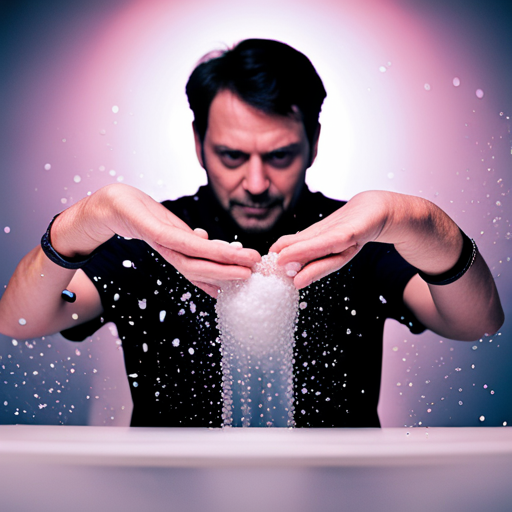Are you tired of your water softener not working as efficiently as it should be? The culprit could be low salt levels or improperly stored salt. But don’t worry, there’s a solution to your water softener salt woes – crushing your salt!
In this article, you’ll learn about the importance of salt in water softeners and how it can affect the quality of your water. We’ll also discuss the different types of salt and the proper ways to store and handle it to prevent clumping and bridging, which can lead to partial treatment of hard water.
By the end of this article, you’ll have all the knowledge you need to crush your water softener salt woes and enjoy high-quality, soft water in your home.
Key Takeaways
– Proper storage of salt is crucial to ensure efficient water softening and prevent issues with the plumbing.
– Choosing the right type of salt, such as pellets over granules, can also help avoid problems with bridging and partial treatment.
– Alternative options to salt, such as potassium chloride or salt-free water softeners, are available for those who prefer them.
– Safety precautions should be taken when handling salt, including wearing gloves and protective eyewear, and keeping it out of reach of children and pets.
Importance and Purpose
You know that the purpose of salt in your water softener is to remove calcium and magnesium, and it’s important to have enough salt in the brine tank to prevent hard water problems.
However, there are also other benefits to using salt in your water softener. For instance, it can help prolong the lifespan of your appliances by preventing mineral buildup, improve the effectiveness of soaps and detergents, and provide better water quality for your skin and hair.
One common misconception about salt in water softeners is that it’s harmful to drink. This isn’t true, as the salt used in water softeners isn’t the same type of salt used in food.
Additionally, if you prefer not to use salt in your water softener, there are alternative options available such as using potassium chloride or a salt-free water softener. However, it’s important to note that these alternatives may not be as effective as salt in removing calcium and magnesium from your water.
Types and Storage
Choosing the right type of salt and storing it properly is essential for the smooth functioning of your water softening system. The most common types of salt used in water softeners are pellets and granules. Pellets are made by compressing salt crystals and are less likely to form bridges or clumps in the brine tank.
On the other hand, granular salt is made by crushing salt crystals into small pieces and is more prone to forming bridges, which can lead to partial treatment and hard water getting into your plumbing. It’s important to choose the right type of salt for your water softener to avoid any issues.
Proper storage of your water softener salt is also crucial. It’s recommended to store your salt in a cool, dry place, away from any moisture or humidity. This will prevent the salt from clumping or forming bridges in the brine tank. Additionally, using an airtight container can help keep the salt dry and prevent any contamination.
There are different brands of water softener salt available in the market, and it’s important to choose a quality product that’s suitable for your water softener. By selecting the right type of salt and storing it properly, you can ensure the smooth functioning of your water softener and enjoy high-quality, soft water at all times.
Preventing Clumping and Bridging
To prevent clumping and bridging, it’s important to store your water softener salt in a cool, dry place and use an airtight container.
Clumps of salt can form from humidity and moisture, leading to issues with your water softener.
If you notice clumps forming, you can try breaking them up with a tool like a hammer or heavy object. However, it’s best to prevent clumping in the first place by properly storing your salt.
In addition to proper storage, it’s important to take safety precautions when handling salt. Salt can be abrasive and cause irritation to your skin, eyes, and lungs.
It’s recommended to wear gloves and protective eyewear when handling salt. Also, keep salt out of reach of children and pets.
Following these salt handling and storage tips will help prevent issues with your water softener and keep you safe.
Conclusion
Now that you’ve learned about the importance of salt in water softeners and how to crush and store it properly, you can prevent any future issues with your water softener.
Remember to check the salt levels regularly and add more salt as needed. Use a salt that’s recommended by the manufacturer of your water softener and store it in a dry, cool place.
By following these simple steps, you can ensure that your water softener is functioning properly and providing you with high-quality soft water.
Don’t let salt woes get in the way of enjoying the benefits of a water softener. Keep your salt in check and crush those problems before they even occur!
